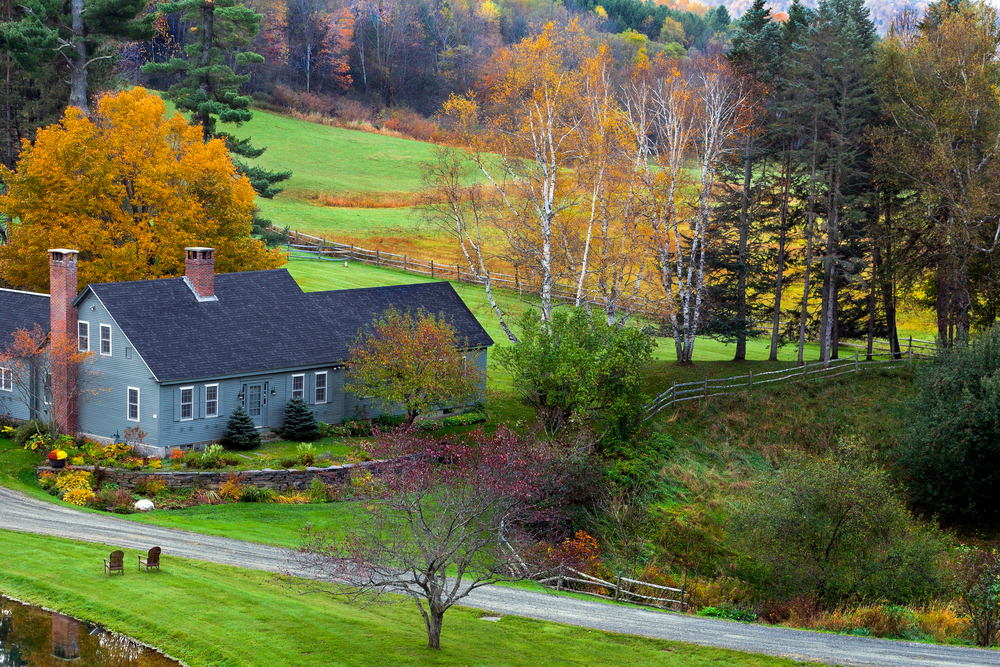Having grown up in a different country, I’ve always been fascinated by the allure of the American countryside, especially how it draws in people who have spent their lives in bustling cities. In many ways, the appeal of country life in the US speaks to universal human desires—simplicity, space, and connection to nature—but it also holds unique cultural significance in the American experience.
For city dwellers, often entrenched in fast-paced environments, the country seems to offer an antidote to urban life.
But what exactly makes country living in the US so captivating to those used to skyscrapers and subways?

1. The Promise of Space and Freedom
One of the most striking aspects of American country life is the abundance of space. Compared to the often cramped, vertical living spaces in cities like New York or Los Angeles, the wide-open spaces in the countryside seem boundless.
There’s room to roam, both physically and mentally. In the country, people often have large yards, acres of land, and quiet, uninterrupted vistas, allowing for a sense of freedom that is hard to replicate in the city.
This openness invites an easier pace, fewer distractions, and a sense of liberation from the confines of urban living.
Growing up in Europe, where space can be limited even in rural areas, I found the sheer scale of the American countryside fascinating. The concept of having a home far from neighbors, surrounded by acres of land, felt both foreign and liberating.
For city dwellers, this access to unbounded space is likely one of the main attractions, offering a reprieve from crowded streets and bustling city noise.
2. A Slower, More Intentional Pace
The contrast between the frenetic pace of city life and the slower rhythms of the countryside is one of the most appealing aspects for urbanites. In cities, time moves quickly, and schedules are tightly packed.
There’s a sense that life is always in motion—work deadlines, social engagements, and the constant noise of traffic and people.
In contrast, life in the country is often quieter and more deliberate. There’s less urgency, fewer crowds, and more opportunities to engage in activities that take time—gardening, hiking, or simply sitting on a porch watching the sunset.
3. A Deeper Connection to Nature
Nature plays a significant role in the allure of country life. In cities, access to nature is often limited to parks or carefully manicured green spaces.
But in the countryside, nature is all-encompassing and ever-present. The sounds of birds, the rustling of leaves in the wind, and the sight of stars in the night sky become part of daily life.
For city dwellers, this immersion in nature can be transformative. The countryside offers the chance to observe the changing seasons up close, grow food in a garden, or watch wildlife from your backyard.
It’s a level of interaction with nature that is hard to find in the city, where artificial light and concrete dominate the landscape.
For many, moving to the country means reconnecting with these natural rhythms, fostering a sense of peace and fulfillment that’s difficult to achieve in an urban setting.
4. A Return to Simplicity
Life in the country tends to focus on simpler pleasures—home-cooked meals, quiet evenings, and hands-on tasks like fixing things or tending to animals.
This simplicity contrasts with the complexity and fast pace of city life, where technology, entertainment, and constant connectivity reign supreme.
In the country, the appeal lies in paring down, focusing on what truly matters, and enjoying the little things. Whether it’s baking bread from scratch or sitting around a bonfire with friends, these experiences feel more grounded and meaningful.
For those used to the sensory overload of city life, this simplicity can be a refreshing change, offering a chance to slow down and appreciate life’s basic joys.
5. Community and Self-Sufficiency
One of the more unexpected aspects of country life is the strong sense of community it fosters. In cities, despite being surrounded by millions of people, many experience a sense of anonymity or disconnection.
In the countryside, communities tend to be smaller, and people often know their neighbors, relying on each other for support.
This shift toward a more tight-knit, self-sufficient way of living can be appealing for those seeking a break from the often impersonal nature of urban life. The sense of camaraderie and neighborliness is amplified in rural areas, where people share resources and help one another out.
6. The Allure of a DIY Lifestyle
Country living in the US often involves a level of self-sufficiency and hands-on work that contrasts sharply with the convenience of city life.
From maintaining property to growing food, there’s a do-it-yourself ethic that appeals to many urbanites who long for a break from relying on external services for everything.
For some, this shift represents a return to traditional skills and a more sustainable way of living. The opportunity to be more independent and resourceful, whether it’s through gardening, raising chickens, or even building structures, can be deeply satisfying. City dwellers often crave this sense of agency and the opportunity to engage in practical, physical tasks.
